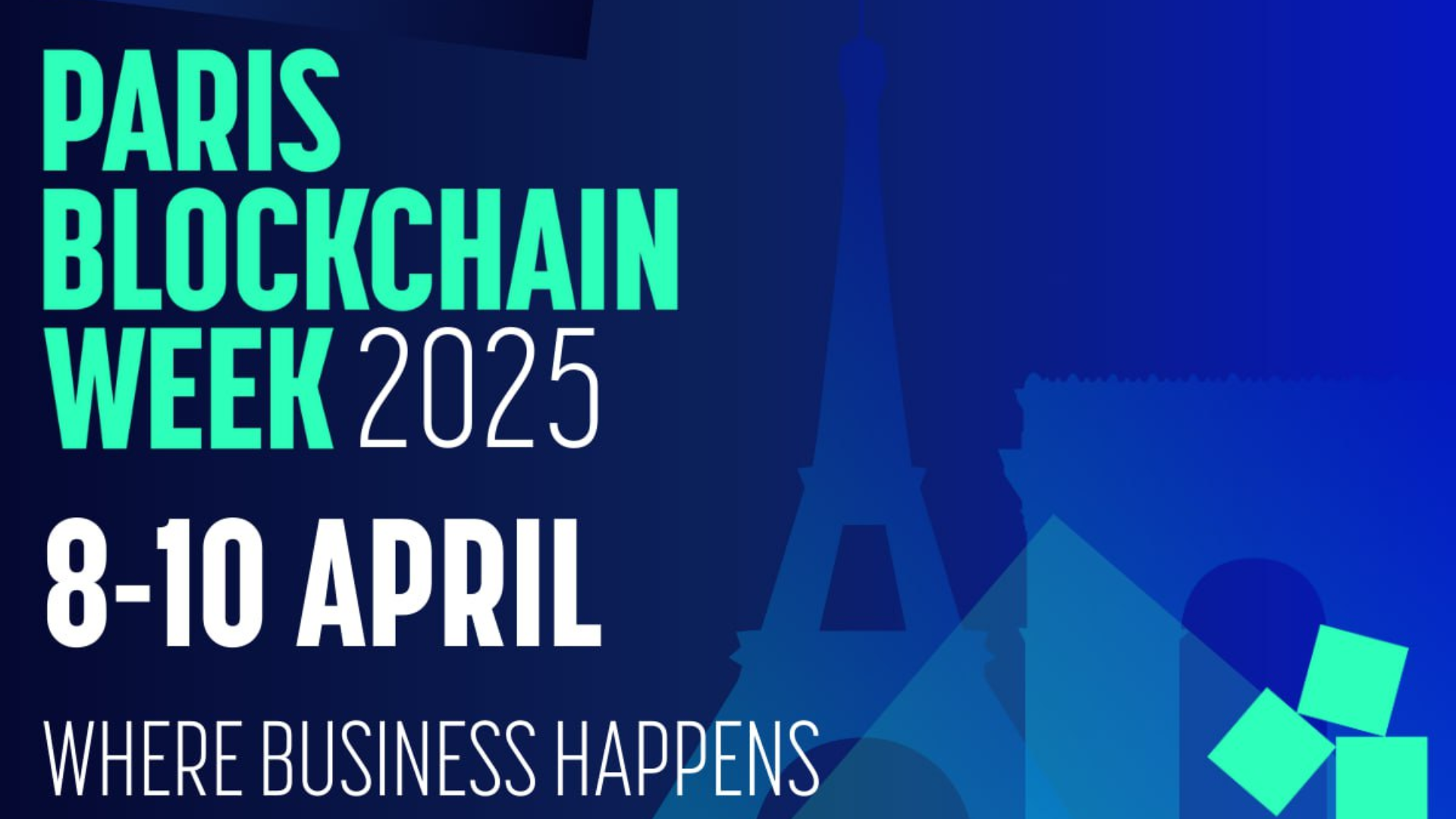
Top Software Skills to Look for When Hiring in the Blockchain and Web3 Space
19th September, 2024 10 min
Companies in the software development space are consistently seeking professionals who possess a broad range of software skills, from core skills that are transferable to more specific skill sets. Blockchain and Web3’s development shows no signs of halting, and the demand for professionals who can accelerate their advancements is soaring. As a result, there has been a notable rise in new software engineer and developer roles.
With this in mind, our guide explores the top software skills to look for when hiring in the blockchain and Web3 space.
Blockchain and Web 3: Cooperative Concepts
Blockchain and Web3 are two approaches that share a close relationship. The development of Web3 relies heavily on blockchain technology as it provides a decentralized framework integral to Web3’s advancement. Decentralization is just one of many shared principles:
- User-Centric: Empowering individuals to have greater control over their data and digital transactions.
- Transparency: Offering verifiable systems and transactions.
- Security: Data protection is galvanized through distributed networks and cryptography.
This connection transcends mere similarities; instead, it’s a symbiotic partnership. Blockchain technology forms the decentralized foundations that enable the functionality of Web3 services and applications, and as Web3 develops, it promotes new use cases and innovation for blockchain.
As the two technologies work together, they continue to benefit from one another whilst simultaneously creating an open and user-centric internet. The features that Web3 reaps from blockchain technology include:
- Decentralization: As discussed, blockchain’s immutable nature allows for trustless transactions and data storage without centralized entities.
- Decentralized Finance (DeFi): This decentralization led to DeFi, a shift away from traditional economic models and includes cryptocurrencies and non-fungible tokens (NFTs).
- Decentralized Autonomous Organisations (DAOs): DAOs promote community-driven decision-making, emphasizing a decentralized governance approach.
- Cryptography: As mentioned earlier, cryptography is a security measure. It protects information by making it unreadable to those who don’t have a decryption key.
- Smart Contracts: Blockchain facilitates the creation of decentralized applications (dApps) that are integral to Web3 development.
It’s clear that Web3 and blockchain have overlapping principles. In addition, many skills necessary for their progression also intertwine. Let’s take a look at them:
Smart Contract Development
Though considered a skill in its own right, a diverse set of skills is required to become proficient with smart contract development - and ultimately, in Web3 development and blockchain developer jobs.
Before delving into the specialist software skills, let’s discuss key competencies that are needed:
- Smart contract development is a complex field; therefore, analytical and problem-solving abilities are necessary.
- Collaboration with other developers and stakeholders is essential for developing Web3 and blockchain - excellent communication skills are imperative.
- Given the evolving nature, one must be committed to learning to remain adaptable in the field.
Smart Contract Design
To elevate functionality, efficiency, and security, smart contract developers use various design patterns. These are pre-defined and reusable solutions to recurring challenges in the development process, for example:
- Security Patterns: Protect against malicious attacks and implement circuit breakers and exit strategies.
- Efficiency Patterns: Code is optimized, and execution costs are reduced.
- Access Control Patterns: Dictates who can execute contract functions and incorporates role-based permissions.
- Contract Management Patterns: Handles upgrades and organizes contract interactions and lifecycle.
Software developers may encounter many challenges when designing a smart contract. Attention to detail is paramount; smart contracts cannot easily be altered upon deployment. Every measure must be taken to ensure the contract is as it should be. Also, significant financial losses are incurred if coding errors occur.
Blockchain Knowledge
A deep understanding of blockchain is fundamental to smart contract development and blockchain developer jobs. Developers must be adept with blockchain architecture. This includes:
- Distributed Ledger Technology (DLT): A decentralized digital system that allows data to be recorded, shared, and synchronized across multiple nodes or devices in a network.
- Consensus Mechanisms: Measures that allow distributed networks to reach an agreement on the state of the blockchain without a central authority. There are several types of consensus mechanisms. Proof of Work (Pow), Proof of Stake (Pos), Delegated Proof of Stake (DPoS), and Practical Byzantine Fault Tolerance (pBFT).
- Types of Blockchain: There are four main types of blockchain:
Public Blockchain: Open networks that are permissionless and transparent.
Private Blockchain: Permissioned access but with faster transaction speeds.
Hybrid Blockchain: Consists of private and public elements. Flexible in design.
Consortium Blockchain: Managed by several organizations, grants access to selected members, and is more decentralized than private blockchains.
- Blockchain Platforms: Those with blockchain developer jobs must know about Ethereum. This popular platform introduced smart contracts and allowed developers to build dApps. Other notable platforms include Hyperledger Fabric, R3 Corda, and IBM Blockchain.
Cryptography
Next on our list of top software skills is cryptography. Cryptography is critical for smart contract development and a pivotal skill that organizations (particularly Web3 companies) will look for when hiring for blockchain developer jobs and Web3 positions. It is a decentralized system's main security, trust, and privacy source. Here are the key concepts of cryptography:
Hashing
A cryptographic function that’s used regularly in blockchain. It takes an input of any length and produces a fixed-length output that appears random, known as a hash. Every hash is unique to the input, meaning any change will result in a different hash. The key features of hash functions are:
- Consistency: The same input means the same output.
- Irreversible: A hash cannot be reversed.
- Collision Resistance: It’s highly improbable that two different inputs would generate the same hash.
Public-Key Cryptography
Sometimes referred to as asymmetric cryptography, this uses pairs of mathematically related public and private keys. The public key may freely be shared, but the private key must remain secret. Public-key cryptography is primarily used for:
- Encryption: Data encrypted with the public key can only be decrypted with the corresponding private key.
- Digital Signatures: The private key creates a digital signature that can be verified using the corresponding public key, ensuring the sender’s authenticity.
Advanced Cryptographic Techniques
Professionals working with software engineer jobs may be required to be familiar with the following advanced cryptographic techniques:
- Zero-Knowledge Proofs: Allows one party to prove to another that a statement is true without compromising any additional information.
- Homomorphic Encryption: Enables computations to be executed on encrypted data without decrypting it first.
- Multi-Party Computation: Several parties can compute a function over their inputs whilst they remain private. This enables secure, decentralized decision-making processes.
Decentralized Finance (DeFi)
This is an emerging financial technology that professionals with blockchain developer jobs must be confident with. Decentralized Finance aims to utilize blockchain and cryptocurrency technology to build a permissionless and transparent financial system that operates without financial institutions.
It’s built on blockchain networks, mostly Ethereum, which provides an immutable ledger for recording transactions. Common examples of DeFi services include:
- Decentralized Exchanges (DEXs): Platforms for trading cryptocurrencies without a central authority.
- Lending and Borrowing: Users can lend or borrow cryptocurrencies directly.
- Yield Farming: Users can earn returns by providing liquidity to DeFi protocols.
- Stablecoins: Cryptocurrencies designed to remain stable.
- Prediction Markets: Users can bet on the outcomes of events.
- Non-fungible tokens (NFTs): Digital assets representing ownership of items or content.
Whilst DeFi offers many benefits, such as accessibility, transparency, interoperability, and greater control, software developers face significant challenges and risks:
- Security Measures: Developers must work diligently to ensure the security of smart contracts, or they could be susceptible to hacks.
- Uncertain Landscape: As DeFi is early in its inception, regulations are unclear, and developers must take precautions to navigate such uncertainties.
- User Experience: Some users might find DeFi complex, so developing a user-friendly experience could overcome this obstacle.
Programming Languages
Many of the elements mentioned above would not exist without programming languages, and Web3 and blockchain could be ideas rather than practical applications. Additionally, Web3 companies would be scarce, as would some blockchain developer jobs. Therefore, for its progression to continue, software developers must master the following programming languages:
- Solidity: A high-level, object-oriented programming language that’s been purpose-built for designing smart contracts on blockchain platforms - primarily Ethereum.
- Rust: A modern systems programming language that’s statically and strongly typed, meaning all types are known at compile-time, and type safety is enforced. It has a strong emphasis on performance, concurrency, and safety.
- Python: A versatile, high-level programming language renowned for its simplicity and readability. It has extensive libraries and frameworks useful for Web3 and blockchain development, including Web3.py, for interacting with Ethereum.
- JavaScript: A multi-paradigm programming language used for Web3 development, particularly frontend development.
- Go (Golang): Known for its simplicity and built-in concurrency features, Go is an open-source programming language used in projects like Ethereum's Geth client.
- Vyper: An emerging programming language designed to create smart contracts on the Ethereum blockchain. It’s known for its focus on simplicity and security and is seen as a strong alternative to Solidity.
Software Developer and Engineer Jobs Requiring These Software Skills
This combination of core and specialist software skills has generated many jobs. Here are some examples:
- Blockchain Developer: A software engineer who specializes in designing and implementing blockchain-based systems.
- Solidity Developer: Develops smart contracts on Ethereum and decentralized applications.
- Ethereum Developer: Designs and implements the architecture for Ethereum projects.
- Web3 Engineer: Focuses on developing dApps and infrastructure to support the next phase of the Internet.
- Full Stack Developer: A versatile software professional proficient with front and backend web development principles.
- DevOps Engineer: Works to improve collaboration and productivity between software development and IT operations. Manages CI/CD pipelines and implements Infrastructure as Code (IaC).
- Security Engineer: Ultimately, these professionals are responsible for safeguarding computer systems, networks and data.
- Blockchain Architect: Responsible for developing and applying blockchain solutions for companies.
- Smart Contract Auditor: A professional who reviews and assesses the code of smart contracts, identifying and rectifying any problems.
- DeFi Data Analyst: Has expertise in collecting and analyzing data relating to decentralized financial systems and applications.
Final Say: Software Skills Needed in the Web3 & Blockchain Space
The relationship between blockchain and Web3 represents the evolution of the Internet as it becomes a more decentralized model. Blockchain technology provides the blocks that Web3 is built upon, allowing for dApps and services that illustrate the transition into a new era.
As Web3’s development coincides with blockchain’s innovation, this dynamic relationship demands that developers have diverse skills, ranging from smart contract development to a deep understanding of cryptography and decentralized finance. Web3 and blockchain companies seek adaptable professionals who can navigate a space that’s always reshaping.
Not only are Web3 and blockchain technology shaping the future of the Internet, but these technologies and concepts are also creating a need for new software developer jobs and software engineer jobs.
Web3 companies regularly advertise blockchain developer jobs and are eager to recruit professionals with the requisite software skills. However, there’s a scarcity of software developers and engineers readily available due to a combination of a limited talent pool, increased market competition, and a lack of a uniform benchmark in the education process. Fortunately, software recruitment agencies are able to navigate these obstacles and provide solutions for your business by sourcing top industry talent.
Do you need Innovative Software Recruitment Solutions?
We are dedicated to advancing your Web3, blockchain, and crypto projects by connecting you with top industry talent. With a team of over 90 expert recruiters, we specialize in placing professionals in both temporary and permanent roles across the UK, Europe, and the USA.
Discover how we can work with you to achieve your goals, or connect with our team and speak with an expert and discuss how we can support your business.


